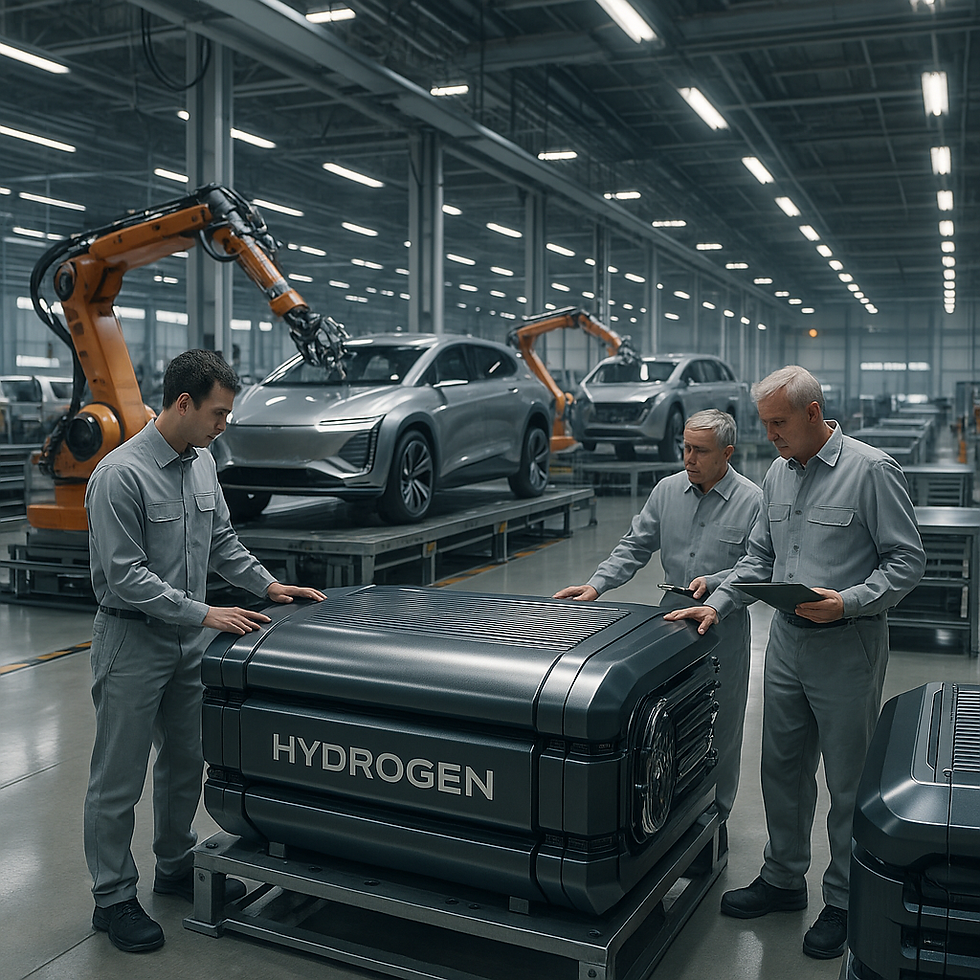
10 Sept 2025
BMW Group has announced that series production of its third-generation hydrogen fuel cell system will start in 2028, reinforcing its strategy of offering multiple zero-emission powertrain options alongside electric and combustion technologies.
The system will be produced at BMW’s Plant Steyr in Austria, the company’s largest engine facility and a key hub for drive system development. Prototypes are already being built at BMW’s hydrogen competence centres in Munich and Steyr, with additional components supplied by the Landshut technology hub. Dingolfing will manage prototype production of the hydrogen-specific BMW Energy Master, a unit that regulates power supply between 400 and 800 volts.
BMW Group has announced that series production of its third-generation hydrogen fuel cell system will start in 2028, reinforcing its strategy of offering multiple zero-emission powertrain options alongside electric and combustion technologies.
The system will be produced at BMW’s Plant Steyr in Austria, the company’s largest engine facility and a key hub for drive system development. Prototypes are already being built at BMW’s hydrogen competence centres in Munich and Steyr, with additional components supplied by the Landshut technology hub. Dingolfing will manage prototype production of the hydrogen-specific BMW Energy Master, a unit that regulates power supply between 400 and 800 volts.
Landshut, BMW’s largest component plant, manufactures lightweight parts, electric drive systems, and engine and body components. It will also produce crucial hydrogen-related components, including the Energy Master control unit. Dingolfing, the company’s biggest European vehicle production site—home to the BMW 7 Series, 5 Series, and the electric iX—plays a central role in BMW’s electrification strategy, producing high-voltage batteries and e-drive systems.
Joachim Post, BMW board member for development, said the launch of BMW’s first hydrogen-powered production model in 2028 demonstrates the company’s “technology-open” approach. He added that placing production in Steyr underscores BMW’s commitment to maintaining a strong European innovation footprint.
The latest hydrogen fuel cell technology, co-developed with Toyota, is more compact, powerful, and efficient than previous versions. The third-generation system is 25% smaller, integrates more easily into new vehicle platforms, and delivers higher performance and range with reduced energy consumption.
Component series production is scheduled to begin in May 2026, with prototype output at Dingolfing starting mid-2026.
BMW’s partnership with Toyota on hydrogen technology spans more than a decade. The first generation, supplied entirely by Toyota, was installed in a BMW 5 Series in 2014. The second generation powers the BMW X5 Hydrogen pilot fleet. The third-generation system reflects deeper integration, supporting both passenger and commercial vehicle applications.
Klaus von Moltke, head of engine production at BMW and director of Plant Steyr, said the facility’s future role in producing hydrogen fuel cells alongside combustion engines and electric motors illustrates BMW’s diversified approach to mobility.
Industry experts note that the move reinforces hydrogen’s role as part of a diversified zero-emission future, even as battery-electric vehicles continue to dominate current investment.
The detailed article is published by https://www.press.bmwgroup.com/global/ can be accessed from https://www.press.bmwgroup.com/global/article/detail/T0452048EN/hydrogen-high-tech-at-the-bmw-group:-start-of-series-production-in-2028-is-getting-closer?language=en
Source
